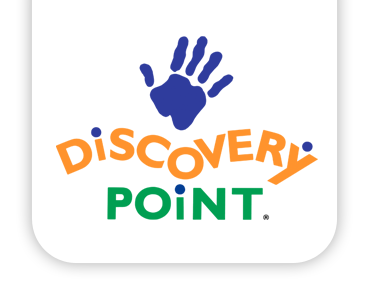Discovery Point Blog

Seven Keys to Finding the Perfect Child Care Provider for Your Child
Selecting the right child care provider for your toddler or preschooler can have a positive effect on his or her entire academic career. Dedicated teachers and innovative enrichment activities can instill an enthusiasm for learning that can last a lifetime. Knowing what to look for in an early childhood education center can ensure that you make the right decision for your child. Here are seven factors you should consider when choosing your child’s preschool or child care facility.
Qualifications
Checking on the credentials of teaching staff members can provide you with an added basis for comparison when choosing a preschool for your child. The National Association for the Education of Young Children (NAEYC) is the accrediting body for early childhood education programs. Teachers who complete these degree programs are well qualified to take on the challenges inherent in the preschool and child care environment.
Curriculum
Although some preschool and child care environments do not work from an established curriculum, most educational experts recommend the use of a consistent philosophy throughout the program to ensure adequate structure for younger children. Discovery Point, for example, bases its educational program on the Creative Curriculum System for Preschool. This approach allows teachers to provide students with structured schedules while leaving plenty of room for individual expression and creativity.
Staff and Student Interactions
During your on-site visit, be sure to observe the staff members and the students in their care. If the preschoolers currently attending the facility appear to be engaged and excited about learning and confident in their interactions with their teachers, the facility may be one to consider further. Students who appear bored or nervous during everyday classroom activities, however, may indicate a failure to connect on the part of staff members at the preschool.
Environmental Issues
Clean and cheerful surroundings are essential to promote learning and fun in the child care environment. While hospital corners and white glove treatments are not necessary in preschool, a general level of care for personal and institutional hygiene is important to ensure your child’s health and welfare at school.
Child-Teacher Ratios
The legally allowable number of children per teacher varies from state to state. For young children, ratios of one teacher to three to four children are generally considered good. Older children require less one-on-one attention as a rule; larger class sizes are acceptable as the age of the student increases. The most important factor, however, is your own comfort level with the number of students per teacher in the learning environment.
Communications
Many modern preschools and child care facilities offer daily reports on your child’s activities and behavior. Discussing the types of communications you can expect and the methods by which these reports will be delivered can help you determine your own comfort level with the process and the information provided by teachers and administrators on a regular basis.
Expectations
Achieving a clear understanding of the school’s expectations in terms of scheduling, sick days, student behavior and payment policies can help you to avoid unpleasant surprises after enrollment. It is also a good idea to communicate your own expectations regarding school activities, curricula and other elements of the educational process. This can help you decide if a particular facility is a good fit for the needs of your child.
The educational team at Discovery Point can provide a safe and caring environment for your child. Our dedicated teaching staff will work with your toddler or preschooler to stimulate his or her creativity and engagement and to create a customized learning plan that suits your child perfectly. This can ensure the most enjoyable and educational experience during the critical first years of your little one’s life.


